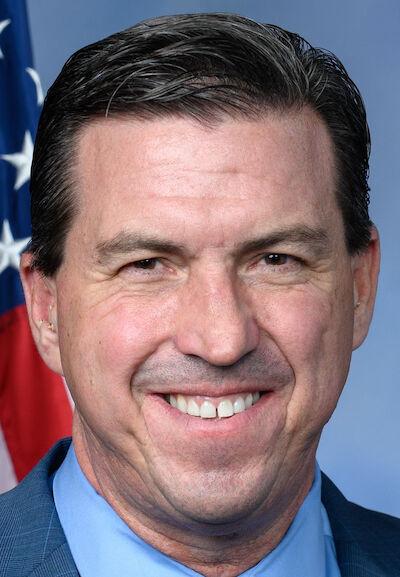Two years into the pandemic, San Mateo County’s child care system is still trying to recover from dips in enrollment but surging costs of operations, leaving leaders in the field to highlight necessary long-term solutions that will allow the vital industry to continue operating.

Kevin Mullin
“Prior to the pandemic access to quality child care was already a persistent challenge but the impact of COVID protocols and the shutting down of facilities has illuminated the importance of this sector and the lives of so many of our residents,” Assembly Speaker pro Tem Kevin Mullin, D-South San Francisco, said during a panel discussion Wednesday, Feb. 2.
Mullin was joined by a handful of industry leaders to discuss how the pandemic has exacerbated hurdles within the child care industry, including insufficient employee wages and unstable revenue streams.
Kitty Lopez, the co-chair of Build Up San Mateo County and executive director of First 5 San Mateo County, said industry leaders and local officials had been meeting weekly for 18 months to discuss the state of child care in the county, a multimillion dollar industry serving about 40,000 children daily, noted Sarah Kinahan, a coordinator with the Child Care Partnership Council.
“Despite its size and essential nature, our child care system was fragile even before COVID hit with providers operating on razor-thin margins,” Kinahan said.
At the start of the pandemic, about 45% of operators said they had a month or less of cash on hand, Kinahan said. And about half of the child care programs operating in the county closed, mostly occurring among family child care home and smaller centers, she added.
Enrollment numbers have since improved to about 61% of pre-pandemic figures, Kinahan said. And providers have received some support from millions in state and federal dollars but Kinahan said hundreds of millions more in funding is needed to ensure all families who need child care have fair and equitable access.
David Fleishman, executive director of 4C’s Child Care Coordinating Council of San Mateo County, noted women of color were the greatest hit by the pandemic, most often being the ones expected to relocate often without the capacity to absorb debts or to take time off.
“The pandemic has exacerbated the vulnerabilities of the field and has also brought to light many of the equity issues that ware here in the field,” Fleishman said.
As the state moves to implement universal transitional kindergarten in schools, providers will likely face additional hurdles as parents decide into which programs to place their 4-year-olds, said Christopher Maricle, executive director of Head Start California.
Four-year-olds, who constitute about 40% of the children enrolled in Head Start programs, are less expensive to care for due to state children-to-adult ratios, meaning some providers will have to decide whether expanding their slots to children under 2 is financially feasible.
With the local industry short about 20,000 slots, according to a five-year-old assessment of the industry Kinahan cited, more options will greatly benefit families but Maricle said getting a universal program portal online will even the playing field for providers who lack the strength school districts and larger providers have to advertise their programs.
The speakers expressed hope some relief will come to the region through the federal Build Back Better bill though the future of that legislation is unknown. And the county still has millions of federal American Rescue Plan dollars to distribute.
Mullin noted additional state legislation is in the works, such as changes to child care licensing, that could alleviate some of the strain. And state funding is also being directed to the industry but Maricle noted the funding model for child care will need to see far greater revisions if the industry is to remain accessible to all while paying fair and competitive wages.
“We can not keep going back to the governor for a larger piece of the same pie,” Maricle said.
Ultimately, Michelle Blakely, deputy director of First 5 San Mateo County, said a shift in public will is necessary to solidify consistent revenue streams for the industry, noting consistent federal and local support is critical for keeping the industry running equitably.
She also argued that the economy’s recovery depends greatly on getting women back to work, noting they are often the primary caregivers for the young and old.
“It’s key to our economy to get women working especially when … half of the working folks in this county are women,” Blakely said. “We need funding steams to support of children and families and so we need to have a strong labor force to do that.”
(650) 344-5200 ext. 106

























(0) comments
Welcome to the discussion.
Log In
Keep it Clean. Please avoid obscene, vulgar, lewd, racist or sexually-oriented language.
PLEASE TURN OFF YOUR CAPS LOCK.
Don't Threaten. Threats of harming another person will not be tolerated.
Be Truthful. Don't knowingly lie about anyone or anything.
Be Nice. No racism, sexism or any sort of -ism that is degrading to another person.
Be Proactive. Use the 'Report' link on each comment to let us know of abusive posts.
Share with Us. We'd love to hear eyewitness accounts, the history behind an article.